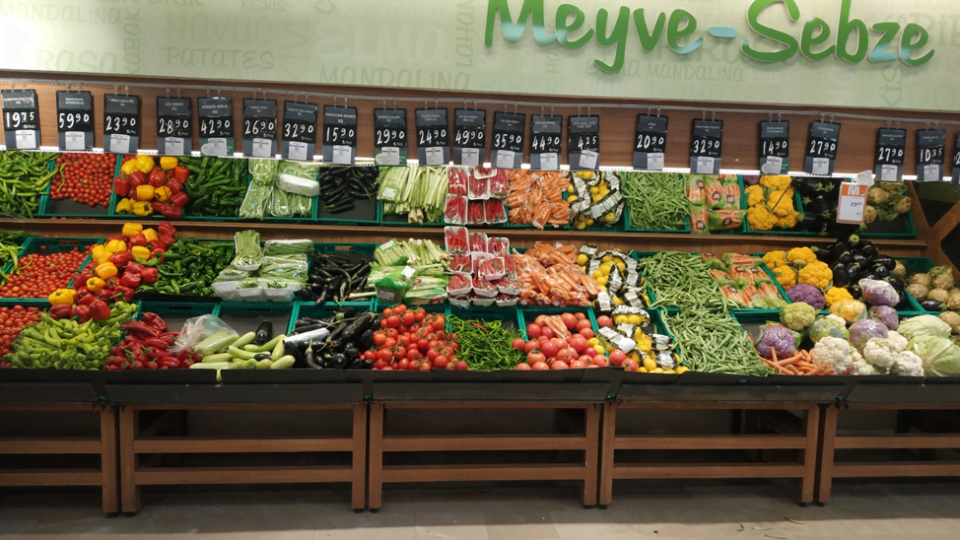A group of consultants from the EastFruit project and representatives of the retail trade visited Turkey in November 2022 to exchange experience in organizing trade in fruit and vegetable products.
We managed to visit the distribution centers of the country’s leading supermarket chains (DC), the largest wholesale market in Istanbul, evaluate the layout, assortment, quality, and prices for vegetables and fruits in the country’s retail chains, meet with the largest fruit producers and the largest logistics companies, see the distribution centers of large farmers and representatives of online trading.
We believe that the information we received will be useful for supermarket chains, wholesalers, and even government agencies in Central Asia, namely Tajikistan and Uzbekistan.
Let’s briefly describe the most interesting aspects of the chain of production and sale of fruits and vegetables in Turkey.
- 1. Attractive fresh fruit and vegetable section at the entrance to the store, the so-called “come-come” concept
Notable for us in Turkish supermarkets was the presentation of fruit and vegetable products in front of or at the entrance to the store, be it a hypermarket, a classic supermarket, or a discounter. Fruit and vegetable departments are often located right on the street as if luring customers inside the store, where the shelves with fruits and vegetables were also duplicated. This approach is called “come-come” in Turkey.
We also pay attention to the location of the fruit and vegetable department in our regular audits of the fruit and vegetable departments of supermarkets in the region. If the department is not located at the entrance, we assign penalty points when compiling ratings. We recommend using this approach for our retail chains because it really helps increase flow.
At the same time, supermarket chains report minor problems with product theft, even if the department is located on the street and there is no person constantly watching it. In any case, such losses are more than compensated by the increase in the flow of visitors to the store.
 Photo: the fruit and vegetable department starts at the store entrance, the “come-come” concept
Photo: the fruit and vegetable department starts at the store entrance, the “come-come” concept
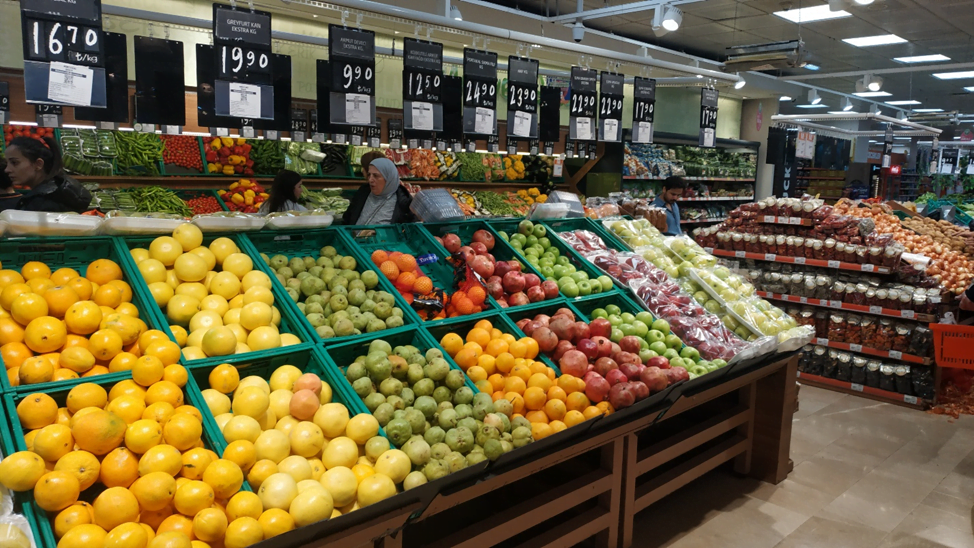
Photo: fruit and vegetable department
2. Advanced chain of discounters
Notably, the retail chains in Turkey have more than 30 000 successfully operating discounters. The BIM chain has more than 7 000 stores, the 101 chain has more than 10 000, and SOK has more than 7 500 stores. A large part of them is in the capital Ankara and in the country’s largest city, Istanbul.
The average bill is relatively low in our countries, where the level of competition from markets and bazaars is high, the level of provision of the population with personal transport is also low, and consumers still think that supermarkets sell products more expensive, the discounter format can be very competitive.
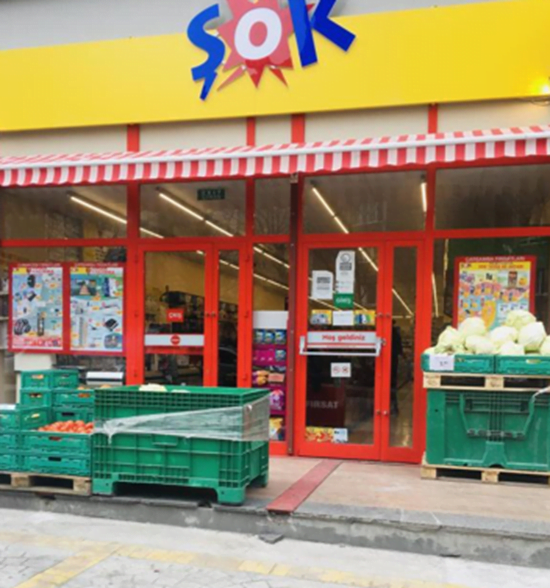
Photo. Discounter “Shock”, with a counter on the street
3. Advanced network of online services
The segment of online grocery trading is very well-developed in Turkey. On the one hand, there are online orders from offline supermarkets, and on the other hand, there are services dealing exclusively with online sales and having a network of so-called “dark stores”, i.e. stores without consumers, where orders are only formed.
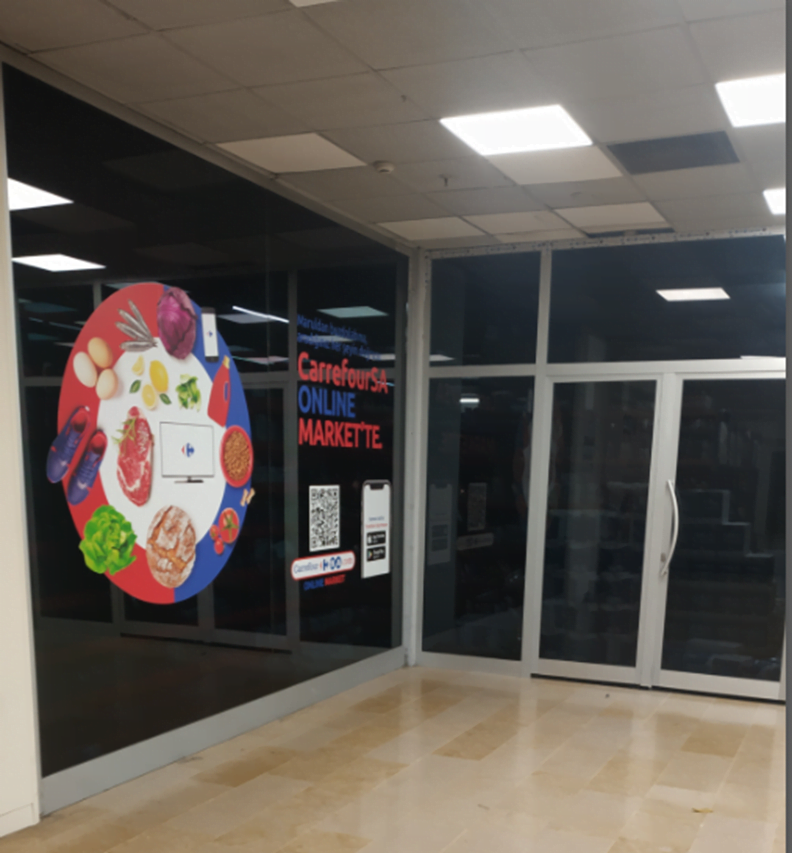
Photo. Darkstore of the Carrefour network
Online stores can be divided into those that guarantee prompt delivery, i.e. within 15-30 minutes to the house from the time of order, and those that provide a competitive price and next-day delivery. Vegetables and fruits in Turkey can be ordered online in the following stores.
- Bim (the largest retail turnover and the most reasonable prices).
- Migros. Online order.
- A101. Online order
- CarrefourSA. Online order
- Şok. Online order.
- Macrocenter. Online order
- Happy Center. Online order.
- Üçler. Online order
- Onur Market. Online order.
- Mopaş. Online order.
- hepsiburada.com
- n11.com
- trendyol.com
- gittigidiyor.com
All chains in Turkey have plans to expand the online trading sector.
There are no stable e-commerce stores in Tajikistan. In PAYCAR and AMID chains, you can place an online order and there is an online store Magnit.tj, but there are few online orders.
With the change in the profile of the buyer and the improvement of Internet access in the country, this segment will undoubtedly develop.
Online trading is much better developed in neighboring Uzbekistan. During the COVID-19 pandemic, many supermarket chains launched online delivery, which keeps developing even now. You can learn more about this, for example, in the interview with Roman Saifulin, manager of the largest chain in Uzbekistan Makro.
4. Product traceability system
In Turkey, there is a real opportunity to track the path that the products purchased by the consumer have traveled from the farmer’s field. This is mandatory, and a product traceability system is an important element in ensuring food safety. Thanks to this, adaptation to international safety standards ceases to be a problem, which significantly expands the horizons for the export of vegetables and fruits.
By the way, Turkey is the 7th-9th in the global ranking of the largest exporters of fruits and vegetables with a revenue of more than $6.4 billion, and export volumes continue to grow rapidly.
The traceability system protects not only consumers but also producers, simplifying their relationship with other market participants.
Once a farmer has produced a product and decided to sell it, he is obliged to register it in a state system, which is easy to do. Each further operation to change the place of residence or change the owner of the product will be reflected in the same system.
Information is entered by commission agents at the district or central market level, including information about who transported the product to the market (car number and volume, from where, and to whom). Information is usually entered either by commission agents or by employees of wholesale markets at the district or central level. Without registration, products cannot be sold in retail markets or supermarkets.
It is important for the state to know what is grown and where, how much is sold and where. In addition, the information is necessary for tax purposes. There is a local tax of 1% of the value of the goods sold, which is paid by the farmer, and the tax is charged at the time of registration. The tax is paid to the municipality. However, farmers certified with the internal G.A.P. system of good agricultural practices, which is a localized analog of Global G.A.P., or with the organic system, are exempt from paying the tax.
This is a kind of incentive for the introduction of a farm accounting system and for compliance with the production practices of the Global G.A.P. requirement, which reduces the risks of all market participants and helps integrate into the international market.
Thus,
- Consumers can find out the path of the product from the field to the counter, which increases the level of consumer confidence in the system.
- The state has full data on the movement of goods to the consumer and the volume of their production, sales, and prices.
- The state can record taxable transactions.
- The state and consumers can quickly respond to any possible food safety problems and eliminate their causes, which positively influences the level of trust in the system.
5. Commission agents
All products in Turkey are required to be sold through commission agents, traders, or wholesale markets. There are both traders and commission agents in the wholesale markets. At the same time, there are many more agents than traders.
Traders (merchants) are entrepreneurs buying products from farmers with their own money and selling at prices they deem profitable. They take on price risks, so they are interested in buying low and selling high.
A commission agent is a rather specific category of market participants, which is not found in most countries of our region. In our opinion, it is the presence of commission agents that is one of Turkey’s trade advantages in the fruit and vegetable trade. However, their existence and successful functioning are possible only if there is a high level of trust between all market participants.
Commissioners work under license at the level of districts, regions, and the capital. Also, most of the outlets in the wholesale markets of Istanbul are rented by commission agents.
The essence of the work of the commission agent is that neither he nor the farmer knows at what price the products will be sold. In fact, the commission agent is the representative of the farmer and sells products on his behalf. At the same time, the goods remain the property of the producer until they are sold and never become the property of the commission agent.
The commission agent is interested in selling products at a higher price because the payment for his services is fixed as a percentage of the proceeds. The commission agent takes from 8% of the revenue for its services, but, in fact, this percentage is almost always much higher. According to the farmers with whom we spoke, the commission percentage reaches 15% and even 20% in some cases. The remaining amount is transferred by the commission agent to the producer within 14 days from the date of sale of the products by bank transfer. Transactions can be tracked in the product traceability system.
Commissioners perform other essential functions for the operation of the entire fruit and vegetable distribution network in Turkey. For example, they are competitors of banks in the agricultural sector. In most cases, commission agents finance the purchase of seeds, fertilizers, and other inputs by farmers to guarantee long-term cooperation with them. Often a farmer who needs money for some major expenses, not even related to business, such as the wedding of children or the construction of a house, does not go to the bank, but applies for a loan to his commission agent!

Photo at the wholesale market in Istanbul.
6. Pricing
Wholesale markets publish their selling prices daily. In addition, there are services for communicating prices via phone in various formats. Therefore, farmers can track the selling price of products on any day to forecast their income.
Usually, farmers give their products for sale to several commission agents. By the way, if three complaints are registered against one commission shop operating in the wholesale market, an internal audit will be carried out by the market supervision committee, and the commission agent may lose his license and trading place, for which there is always a large queue of those who want to.
FYI, all food supplies in Turkey are subject to 1% VAT, including wholesale, retail, imported, packaged, and unpackaged food products.
7. Distribution centers (DC) of supermarket chains and farmers’ cooperation
Buyers of retail chains in Central Asia often purchase local products in wholesale markets, in the same place as bazaars and other market participants, but this procurement system becomes inefficient with an increase in the number of stores by hundreds or even thousands. After all, it does not give the supermarket any advantages. For example, in some chains in Tajikistan, a buyer from each store of one chain goes to the market, where they compete for goods with each other! This leads to the fact that there are different goods in terms of assortment, quality, and price in stores of the same chain!
Of course, it is much more efficient to work through a single distribution center (DC). If the chain is large and operates in different regions, several distribution centers or even chains of distribution centers of several levels can be established. All supermarket chains in Turkey including those that only sell online, have their own distribution centers.
The presence of the distribution center makes deliveries in the chain more profitable for farmers. For a farmer or a cooperative of farmers, it is more profitable to immediately deliver 10 or 20 tonnes directly to the supermarket distribution center than to deliver 50-100 kg to many stores. Well, the price is more competitive when using the DC.
By the way, many people mistakenly believe that farmers supply raw materials to the DC, products in bulk, without sorting, washing, packaging, etc. In fact, it is the opposite – the products supplied by farmers to the distribution center of the supermarket chain or to the wholesale market must be ready for sale – washed, if necessary, sorted, and properly packaged. Supermarket chains in Turkey also do not bear the costs and risks of long-term storage of products.
Photos below: finalization of products in the distribution center
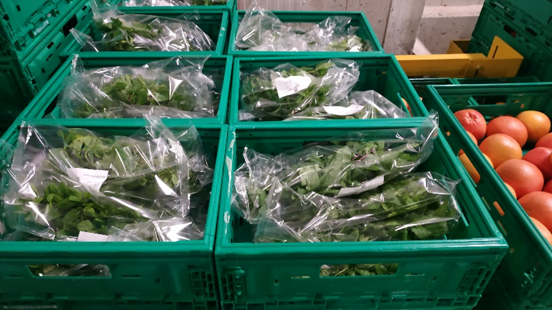

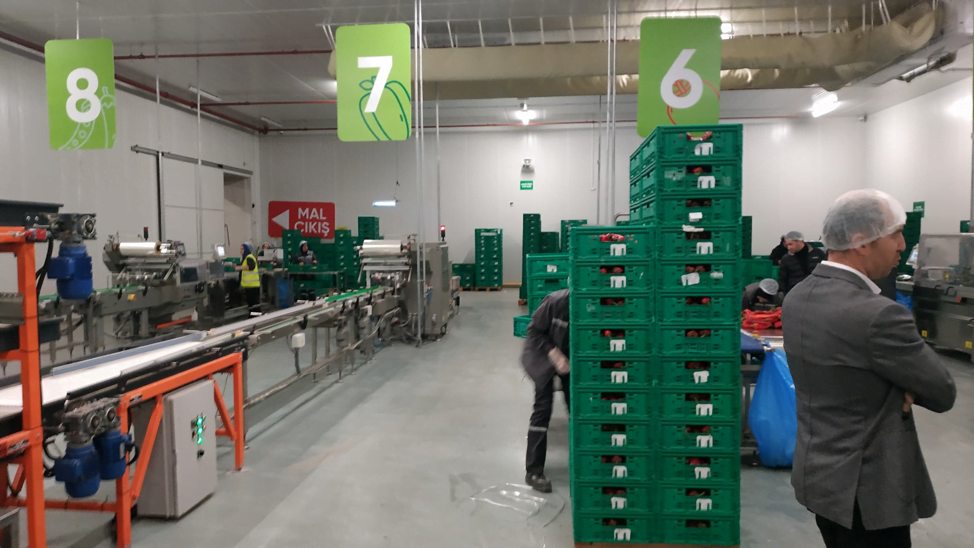 In some cases, chains take over packaging, but this is the exception rather than the rule. Accordingly, to provide products of the required quality, farmers must cooperate to create an infrastructure for storing, processing, and sorting products.
In some cases, chains take over packaging, but this is the exception rather than the rule. Accordingly, to provide products of the required quality, farmers must cooperate to create an infrastructure for storing, processing, and sorting products.
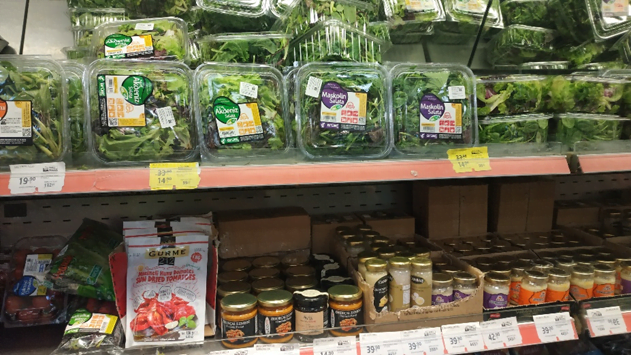
Thanks to the system, the prices for products in retail stores in Turkey are always at a very competitive level with markets and bazaars.
8. Integration of agribusiness and retail business
Vertical integration of participants in the horticulture business in Turkey is quite often. For example, the highly successful Hakmar supermarket chain entered the retail business after success in the production of fruits, vegetables, and herbs.
Photos below: DC, storage, and store of Hakmar chain
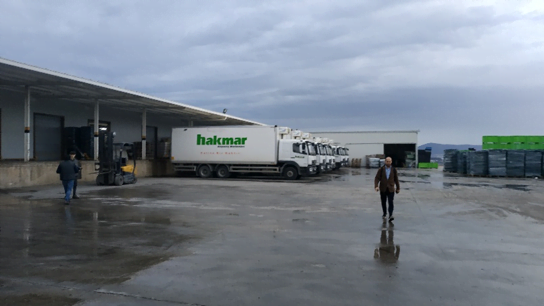

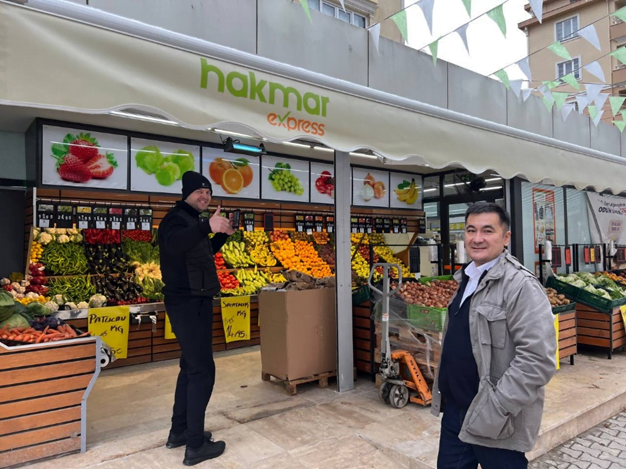
Now they are developing a chain of discounter supermarkets and their own production. At the same time, the share of vegetables and fruits in the chain’s sales is very high. This once again confirms our statement that it is the fruit and vegetable department of the supermarket that is the key to the success of the entire retail business.
According to one of the founders, with their own production, they provide a single standard for fruit and vegetable products in all stores (one variety, one degree of ripeness, quality, and packaging), which ensures consumer loyalty.
We also learned that there are producers’ cooperatives in Turkey, that also have their own retail stores. In addition, large holdings that own leading supermarket chains often create large horticultural enterprises or greenhouses.
These models can also be developed in Tajikistan and Uzbekistan. By the way, there are already large companies in Uzbekistan that own both large horticultural farms and supermarket chains at the same time.
9. Pooling
Box pooling is highly developed in Turkey – this is the efficient use of reusable folding containers made of super-strong food-grade plastic. The system allows to reduce the cost of packaging products, product losses, and time and labor costs at different stages of product distribution. It has a positive effect on the quality and competitiveness of fruits and vegetables.
However, there is more about the pooling system in the material of Fedir Rybalko, FAO international consultant.
The use of the site materials is free if there is a direct and open for search engines hyperlink to a specific publication of the East-Fruit.com website.




